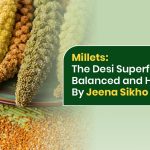One of the most serious diseases today is lung cancer, which affects millions of people around the world. Lung cancer usually starts in the lungs, but it can spread to other parts of the body, including the brain. The most common types of therapies include chemotherapy and radiation; however, several patients seek natural and gentle treatments to reduce the side effects and improve their overall condition. The lung cancer treatment in Ayurveda is gaining attention, as Ayurveda differs from modern medicine.
The primary focus of the Ayurvedic medication is not only the disease; the body is treated as a whole, since energy is balanced and detoxified, and its immunity is improved. It does not treat cancer as only a disease but also as an effect of dosha imbalances, such as a poor digestive system, low immunity, and accumulation of toxins. Ayurvedic doctors at HiiMS Jeena Sikho assist with customised treatment depending on the body type, stage of the disease, and emotional wellness. This not only benefits the body but also brings peace to the mind throughout the healing process.
Why Ayurveda for Lung Cancer?
Ayurveda for lung cancer patients is a natural, helpful healing method. It focuses on the root causes, such as poor digestion (Agni), poor immunity (Ojas), and the buildup of toxins (Ama), which are the main causes of unhealthy body conditions. Ayurveda can cleanse the body without harsh effects; it calms the doshas (Vata, Pitta, and Kapha). Strengthens the body with herbs, a satvic diet, and therapies. This complete care also encourages the wellness of emotions needed during cancer recovery. The goal is to fight cancer and help patients feel stronger and calmer. And be more in control of their healing process with long-term positive effects.
Understanding Lung Cancer—Causes, Types, and Symptoms
What is lung cancer?
It is an issue in which the development of unusual growth of cells in the lungs results in the formation of tumours. These cells can transfer to the surrounding tissues and organs.
Common Causes:
- Cigarette, cigar, and tobacco smoking
- Exposure to pollution/toxic chemicals
- Genetic reasons
- Unhealthy eating habits and a bad lifestyle
- Lack of immunity and chronic lung diseases
Types of Lung Cancer:
- Non-small cell lung cancer (NSCLC) is the most prevalent kind.
- Small cell lung cancer (SCLC) spreads and develops rapidly.
Symptoms to Watch For:
- A continuous cough
- Breathlessness
- Chest pain
- Losing weight without a cause
- sputum with blood
- Weakness and tiredness
Early identification of these symptoms also aids in the cost-effective cure and eventual improvement.
Ayurvedic Approach to Lung Cancer at Jeena Sikho
Jeena Sikho believes in natural treatment for lung cancer with a gentle and natural method. Here’s how the healing is done:
1. Detoxification and Panchakarma for Lung Cancer
Jeena Sikho’s Ayurvedic hospitals begin with a deep detox to cleanse the system and prepare it for healing. The therapies include:
Panchakarma for lung cancer involves Vamana, Virechana, Basti, Nasya, and Raktamokshana, which work together to detoxify the body, balance doshas, and support deep healing.
- Nadi Shodhana – Breathing practice for lung health
- Abhyanga – Full body herbal oil massage.
- Swedana – Steam therapy will open up the channels.
- Shirodhara – Oil pouring on the forehead for stress relief
- Parisheka (Dhanyamla): Warm fermented decoction poured on the body to reduce inflammation and toxins.
- Udvartan: A dry powder massage helps to eliminate fat and increase circulation.
- Niruha Basti: Herbal decoction enema (with Dashamoola, Triphala, etc.) to strengthen immunity.
- Patra Pinda Sweda: Herbal leaf bundles that help strengthen the lungs and reduce pain.
When we make the right choice for Panchakarma for lung cancer, these therapies help restore balance, eliminate toxins, and reawaken the body’s healing power.
2. Immune-Boosting and Rejuvenating Herbs
Natural herbs help strengthen immunity and fight abnormal cell growth. Key herbs used
- Ashwagandha – Boosts immunity and reduces stress.
- Giloy (Guduchi) – Fights infections and improves metabolism.
- Turmeric (Haldi): well-known for its antibacterial and anti-cancer qualities.
- Tulsi (Holy Basil) – Supports respiratory health.
- Kanchnar Guggulu – Helps reduce tumour growth.
These herbs are chosen according to the patient’s body type and disease stage.
3. Personalised Diet and Lifestyle
Food plays a significant role in healing. A clean and sattvic (pure) diet is encouraged.
- Light, freshly cooked vegetarian food
- Warm water and herbal teas
- Avoid processed foods, sugar, and dairy.
- Early dinners and proper sleep
The DIP Diet is also followed, which includes fruits till noon, raw salads, herbal drinks, and weekly fasting to support deep detox and immunity.
4. Emotional Support and Mental Strength
Ayurveda believes true healing needs mental peace too. Patients are supported through:
- Counseling
- Meditation sessions
- Group healing
This ensures they don’t just recover physically but also feel emotionally intense and supported throughout the journey.
Conclusion
Lung cancer treatment in Ayurveda is not just about killing cancer cells but healing completely. Jeena Sikho does this through Panchakarma detox. Immune-boosting herbs, DIP diet, personalised care, and natural therapies that rebuild strength from within. Ayurveda brings relief from symptoms, boosts energy, and restores hope. If you or your loved ones are seeking a safer, deeper, and more balanced healing experience, Ayurveda is the ideal approach.
Visit to begin your personalised Ayurvedic journey toward natural recovery and emotional wellness.
FAQs
1. Does Ayurveda have the power to heal lung cancer?
With early diagnosis, Ayurveda plays a therapeutic role in recovery, improves the quality of life, and manages the symptoms naturally.
2. Can cancer patients benefit from Panchakarma?
Under expert care, Panchakarma is safe and improves the internal healing systems in the body.
3. Explain the DIP diet and its advantages.
As the diet involves light eating habits, the DIP diet suggests raw fruits, herbs, detoxification, and increased immunity and healing.
4. Do Ayurvedic herbs help with chemotherapy side effects?
Most Ayurvedic herbs are fatigue relievers and appetite boosters, and help you to survive with chemo and radiation side effects.
5. What is the duration of Ayurvedic therapy for lung cancer?
It takes some time to achieve the desired effect in different individuals, as it depends on their health, stage, and response; however, the results will be evident.







